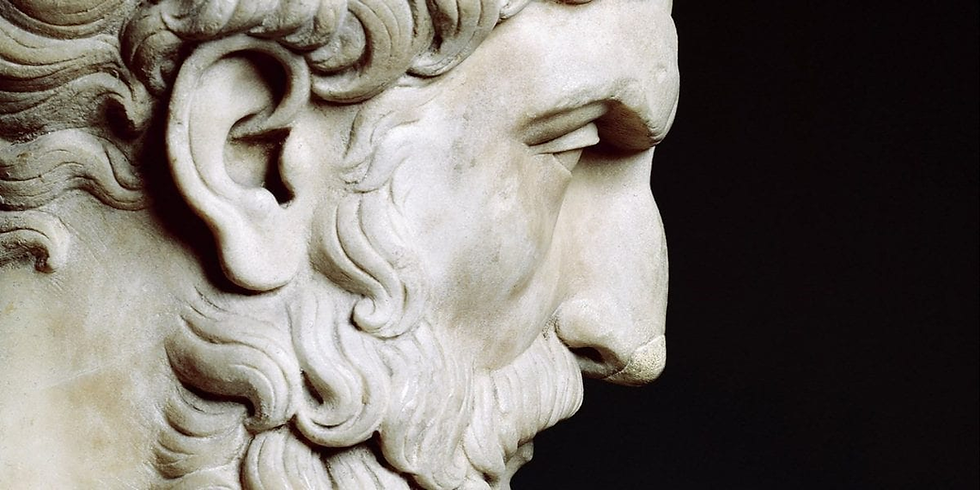Epicurus on Happiness: The Art of Simple Living and Lasting Joy.
- HappyNass
- Apr 7
- 3 min read

Epicurus, an ancient Greek philosopher who lived from 341 to 270 BCE, developed a philosophy centered on happiness and well-being. Unlike other thinkers who sought happiness through power, wealth, or virtue alone, Epicurus believed that true happiness came from simple pleasures, the absence of pain, and peace of mind. His teachings, often misunderstood as promoting indulgence, actually emphasized moderation, wisdom, and a deep understanding of what truly brings joy in life.
At the heart of Epicurus’ philosophy was the idea that pleasure is the highest good. However, he did not advocate for excessive indulgence in food, drink, or luxury. Instead, he argued that the most fulfilling pleasures are simple and sustainable. Enjoying a modest meal, engaging in thoughtful conversation, or feeling the warmth of the sun can bring more lasting happiness than the endless pursuit of wealth and status. For Epicurus, the key was to seek pleasures that do not lead to future pain or regret. He warned against desires that are difficult to satisfy—such as the pursuit of fame or luxury—because they often create anxiety and disappointment.
Another fundamental aspect of Epicurus’ philosophy was the idea of ataraxia, or freedom from mental distress. He believed that much of human suffering comes from unnecessary fears, especially fear of death and fear of the gods. Epicurus taught that death is nothing to be afraid of because it simply marks the end of consciousness. Since we do not experience pain or suffering after death, worrying about it is pointless. Similarly, he rejected the idea that the gods interfere in human affairs, arguing that they exist but live in a state of perfect peace, indifferent to human concerns. By removing these fears, people could achieve a tranquil state of mind.
One of the most important sources of happiness, according to Epicurus, is friendship. He placed great emphasis on strong social bonds and believed that having close, trustworthy friends was more valuable than material wealth. He even lived in a small community with his followers, where they shared meals, ideas, and companionship. For Epicurus, true happiness was found not in isolation or competition but in meaningful human connections.
Epicurus' teachings remain relevant today, especially in a world where people often equate success with money, status, and external achievements. His philosophy reminds us that happiness is not about acquiring more but about appreciating what we already have, letting go of unnecessary fears, and surrounding ourselves with genuine relationships. By embracing simplicity, cultivating peace of mind, and valuing friendships, we can live happier, more fulfilling lives—just as Epicurus taught over two thousand years ago.
Key Ideas of Epicurus on Happiness:
Pleasure as the Goal of Life – Epicurus believed that the ultimate goal in life is happiness, which he defined as freedom from pain (aponia) and peace of mind (ataraxia). However, he didn’t advocate for reckless pleasure-seeking but rather for moderate, sustainable enjoyment.
Simple Living – True happiness, according to Epicurus, comes from simple pleasures like good food, friendship, and intellectual conversations. He warned against chasing wealth, power, or luxury, as they often lead to anxiety rather than joy.
Freedom from Fear – He argued that many people are unhappy because they fear death and the gods. Epicurus taught that death is nothing to fear because once we die, we cease to exist—so there's no suffering to worry about.
Friendship Over Material Wealth – He believed that having good friends was one of the greatest sources of happiness. He even lived in a small community with his followers, emphasizing the importance of social bonds.
Epicurus’ philosophy is often misunderstood as pure hedonism, but he actually promoted a balanced life, where we focus on meaningful pleasures and avoid unnecessary desires that lead to stress.
"Of all the things which wisdom provides to make life entirely happy, much the greatest is the possession of friendship." Epicurus
Editor: Happynass
Comments